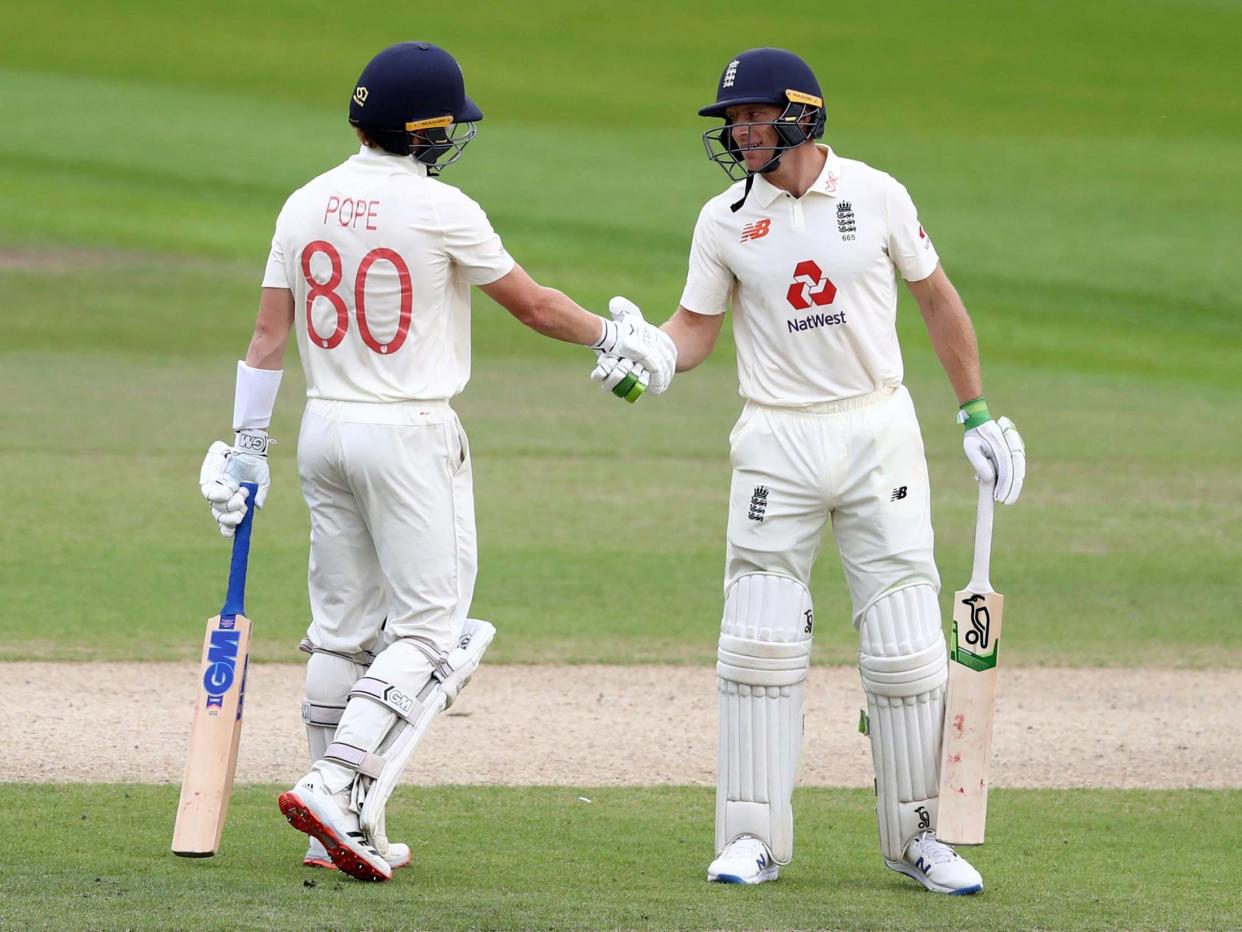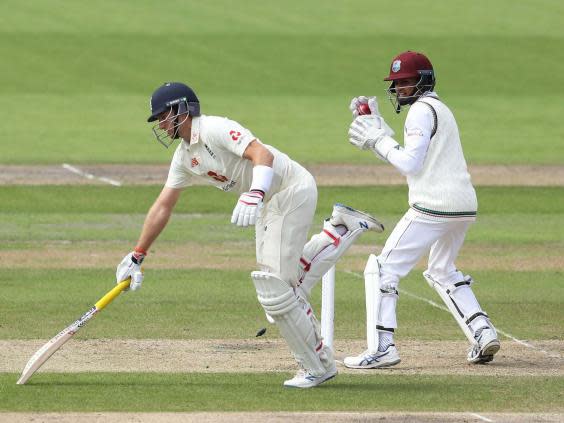England vs West Indies: Jos Buttler digs deep to show Test credentials as Ollie Pope cuts loose

Jos Buttler always has options.
Taking his pick of Twenty20 franchises across the world. Choosing which county to join when he decided to leave Somerset. When and where he should destroy a white ball bowler. That’s how things have fallen for him, as they do for those with exceptional drive and talent.
He takes a similar approach to football clubs, weirdly. He likes Manchester City, Real Madrid and Barcelona. Probably Liverpool now, too. In the 90s, he supported Blackburn Rovers when they won the Premier League in 1995. When told it doesn’t work like that, that you cannot support more than one team, his response was a a straightforward “Why not?” Why would you put a limit on joy?
It’s a good point, well made. The kind of no-nonsense that could work on a bat handle. But Test cricket does not quite work like that, as Buttler has been finding out over a career of two parts featuring more fits than starts. Options have been his downfall.
On Friday evening, though, Buttler was as satisfied as he has been in a long while at the end of a Test day’s play. An innings of 56 from 120 deliveries, a highest score since 70 last September at the Oval against Australia, played with necessary restrictions of form and the situation.
For even before England were 122 for four, Buttler was the last of only six recognised batsmen on the card. The weather around this weekend meant the hosts decided to load their bowling, bringing Jofra Archer and James Anderson back in for Zak Crawley and Sam Curran. The logic was slightly flawed – how do you share one new ball between four opening bowlers? – but the extra pressure to score runs looked heavier on the shoulders of a man who averages 31 against a red ball whether domestic or international.

Second Test centurion Dom Sibley had gone for a duck. Second Test Ultraman Ben Stokes was bowled for 20. The captain, Joe Root, had run himself out for 17. Rory Burns, set on a seventh half-century, unsettled himself on 57. West Indies, needing only to avoid defeat to retain the soon-to-be-renamed Wisden Trophy, were comfortably ahead.
There are many theories out there as to why Buttler has failed to crack Test cricket after 44 goes at it. Some wonder if he needs it. When you are such a once-in-a-generation player in one code, why would you need to spend time worrying about the third? Roger Federer does not lie awake at night ruing the doubles tournaments he hasn’t won.
The others, and this is where the majority seem to be right now, simply reckon he’s not that good at it. That’s OK, of course, but it becomes a bit of an issue when Buttler keeps getting picked. When his run of 23 innings with just a single score of 50 was put to national selector Ed Smith, the response was that Buttler’s trough was reflective of an erratic team, rather a contributing cause of it.
That’s true to a point. The lasts Test summed up some of Buttler’s situations: caught on the rope for 40 when trying to accelerate in the first innings, then bowled for nought when trying to do the same while opening the batting in the second. But not all of his innings have him arriving to the crease and handed a couple of loaves and some fish.
This, though, could be ranked as one of those times. And rather than walk on water, Buttler waded through it. Rather than cure England with a single bombastic touch, he nursed a faltering innings patiently, and with due care. The 38 deliveries to reach double figures was the slowest it has taken him in Tests. Even when the runs started to come a little easier, he did not take any great liberties.
Upon reaching 18 off 53, the point had been reached for Buttler to give a bit back. And in the space of three balls, the first two sixes of the match were hit to take England beyond 200. He would move to 51 off 104 balls.

Yet for all Buttler’s appropriate calm, his knock was made to look far less serene by the man at the other end, Ollie Pope. Where the 29-year-old grated, the kid of 22 thrived. He punched into the covers and drove through the leg side with grace and, barring a top edge on 30 off Shannon Gabriel which was almost claimed by a scampering Roston Chase, looked impenetrable and unstoppable, even if his previous highest score in England was 28. He will reconvene on 91 on Saturday morning, having scored the brunt of these 136 runs in this 38-over partnership, with a second Test hundred within reach.
There’s an interesting contrast to make between Buttler and Pope relating to the long-form game. In November last year, Buttler scored his sixth career first-class century against New Zealand A in his 101st first-class match. Pope reached that milestone earlier in the year in just his 26th. Buttler still has just six. Pope has overtaken him with nine.
The temptation will be to deep-dive those numbers, but the bare facts – and indeed the eye test out there today – is simply that Pope is a superior Test cricket to Buttler. And that, really, is OK.
Beyond Saturday and beyond the rain that may cut this match down to a draw, Buttler must sustain what we have seen here to keep off the threat of Ben Foakes, who came very close to making the XI for this match.
That may still be the long-term play, and it would not necessarily be the wrong one. And perhaps the only thing that could get people to warm to Buttler and Test cricket is if he hits sixth gear tomorrow to boost England to a big enough total to mean they will not have to bat again.
For now though, Buttler finishes the day with better options than when he started. Options that came through playing with limitations.

 Yahoo News
Yahoo News 
